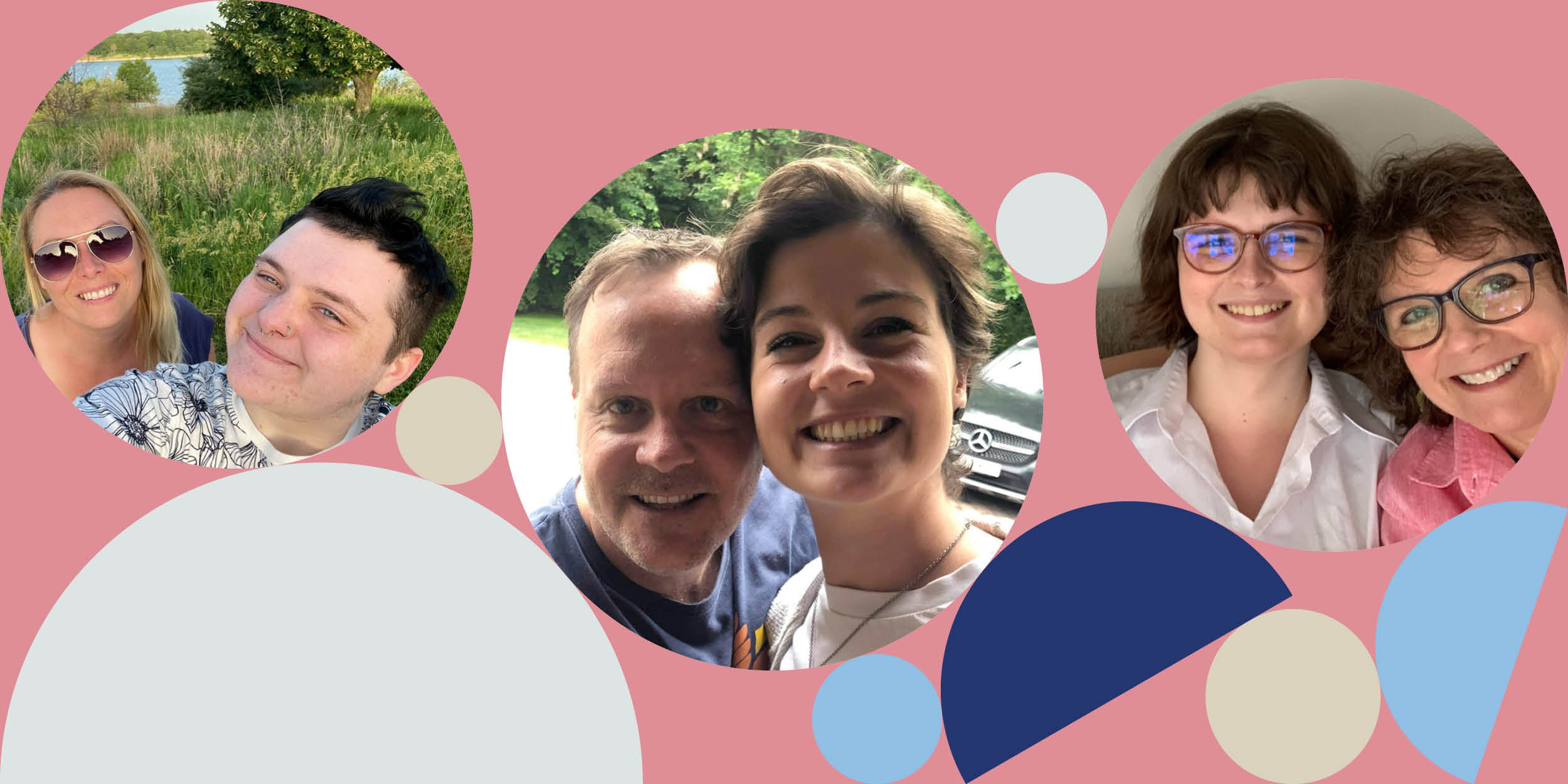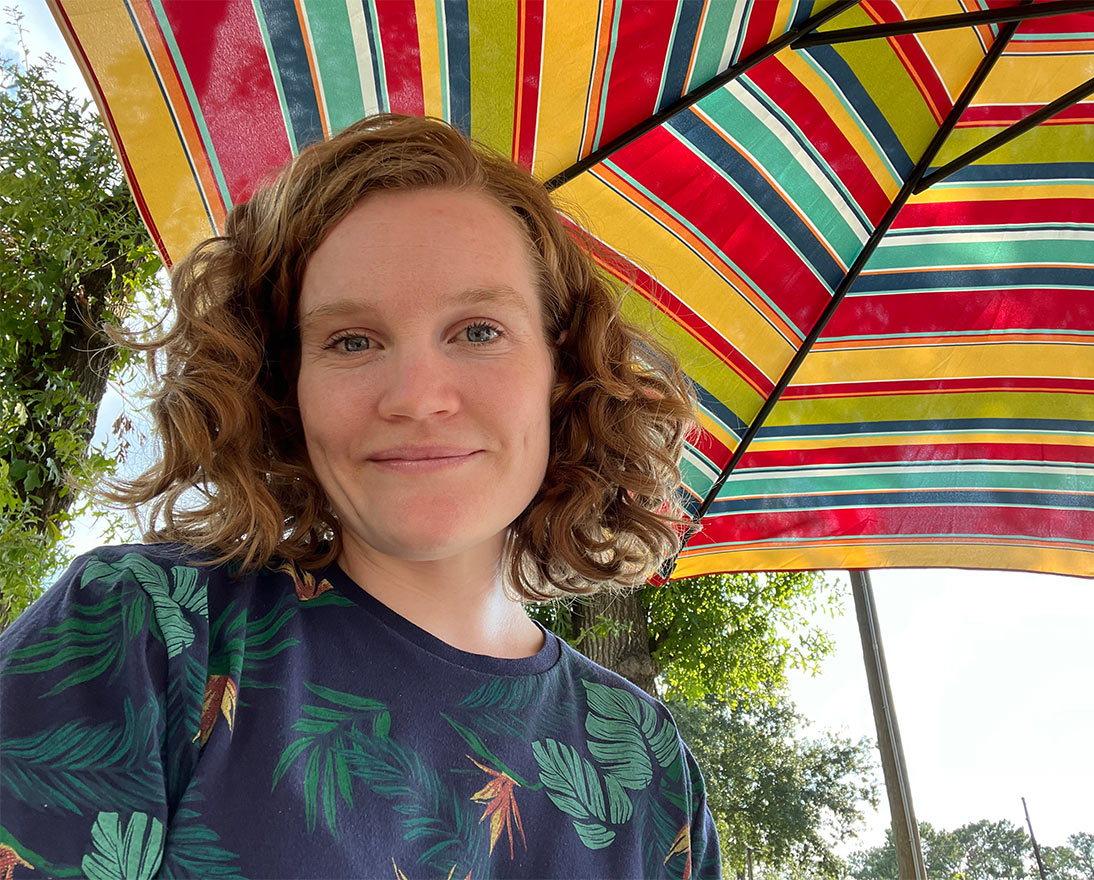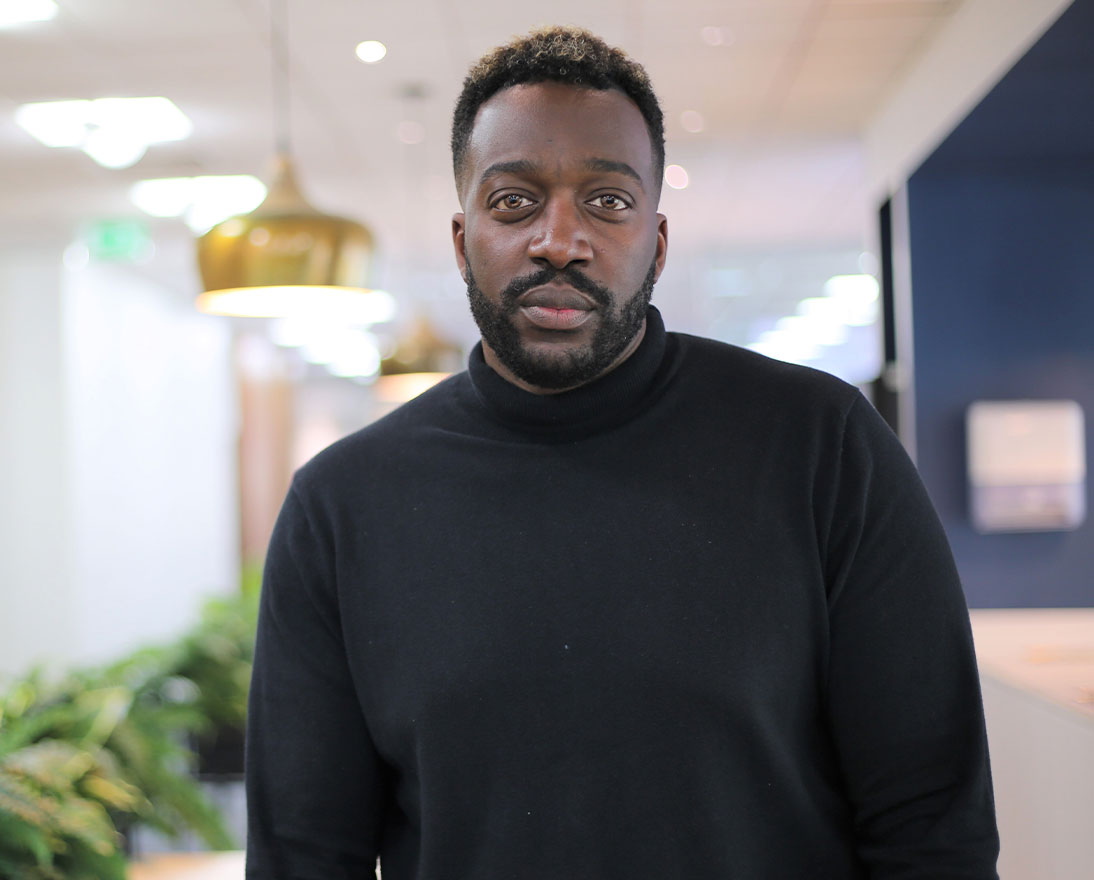Fabulous and proud: Meet the parents of LGBT+ kids
PeopleArticleJune 29, 20229 min read
Every parent expects to deal with the stereotypical teenager. But what if your child identifies as lesbian, gay, bisexual or transgender?
At Zurich, we aim to create a workplace where all employees can thrive, in an environment where everyone is treated as equally important. This Pride Month, three Zurich employees describe in their own words the challenges and joys of parenting LGBT+ teens.
“Now you’ve got your girl” – Mary Sean Ratzloff and daughter Alicia
Alicia was 14 when she came out as transgender to her mother Mary Sean, a HR Employee Relations Consultant at Zurich North America. Already an LGBT+ advocate for many years, Mary Sean personally walked the walk and became her daughter’s advocate during her transition.
In 2015, Alicia explained to her father and me that since she was a young child, she had felt as though she were a girl in a boy's body. After years of introspection, she made a decision to come out and bravely informed us that she is transgender. As we hugged and wiped our tears, we stressed to our daughter that our love for her was unconditional, and our primary focus was her health and happiness.
We were already strong LGBT+ allies because we had gay and transgender friends. It’s a very different perspective, though, when your own child comes out - now we had to walk the walk. Educating ourselves helped us adjust. What we learned through research and shared with family was that most children realize their "true gender" at a very young age. It was not a phase or something Alicia would outgrow.
Initially, Alicia wasn't ready to come out to anyone other than us, her two older brothers, and close friends. Over time, Alicia became more confident with herself and coming out to others. With our help in sharing her important news, Alicia had support from the whole family. Even older family members, some of them in their 80s, were quick to pick up her chosen name and preferred pronouns.
Zurich’s U.S. medical plan covered Alicia’s gender transition healthcare, which was a great relief. I also had support from co-workers. Previously, I had always referred to my children as “the boys” at work, but I needed to recognize and acknowledge Alicia to others. When I told a colleague about Alicia, her immediate response was – “now you’ve got your girl.” And I am very lucky to have her!
Alicia asked me to be her advocate when she underwent her gender affirmation surgery last year. By allowing me to care for her at the hospital and during her recovery, she helped me make a transition, too: to more easily accept that she was changing the body she was born in.
Alicia is now 21 and in college, majoring in psychology, with the goal of counseling others in the LGBT+ community. She enjoys writing fantasy stories and she’s a second-degree black belt in taekwondo. Alicia is passionate about human rights issues, and her activism makes us very proud!
Our goals for Alicia are the same as when we brought her home from the hospital years ago: to be happy, feel good about herself, and to know that she is dearly loved. Alicia once told me: “I’m still me, I’m just a better me. I’m my true self.” It’s amazing to see that transition, to see her blossoming into a beautiful, confident woman.
I’d advise other trans-parents to educate themselves and seek out their own support, so they can better advocate for their child. Focus on the child’s needs and remember how brave they must be to come out. Be patient and make every effort to use their chosen name and pronouns but forgive yourself if you slip up.
Look at this as an opportunity for enrichment and joy, so you don’t miss out on who your child is, the person they were always meant to be.
“He’s my soulmate” – Stephanie Brooks and son Tyler
Zurich North America international service consultant Stephanie Brooks discovered her son was transgender when he was in his teens. Now 20 years old, Tyler uses his own experiences to help counsel young people at summer camp, while Stephanie’s on a mission to help make the workplace more trans-friendly.
Tyler came to me and he said, “Mom, I think I’m a lesbian.” I said, okay, that’s fine. My mom, Tyler’s grandmother, is a lesbian. I didn’t start questioning who I was and what I liked until I was 30 years old. So, I said great, you’re starting at a really young age. I’m super proud of you.
Then I started to notice some behavioral concerns, especially around mental health. He was depressed a lot. I couldn’t figure out what was going on. I really pressed him to talk to me about what’s happening. We’ll get through it together.
He said “Mom, I think I’m transgender.” And I just I took a breath. This was something I had never experienced before. I didn’t know anybody who was transgender. The people who came to my mind, on TV or in movies, weren’t always depicted in a positive light. But I could just see the weight lifted off his shoulders.
After he came out, I started doing a lot of different research. And I started to go to therapy as well. My therapist explained when someone close to you comes out as transgender, it’s the same level of grief you feel when a family member passes away. That made a lot of sense to me. You have to grieve the loss of the person they were before in order to celebrate the rebirth of who they are.
You always tell your kids they can grow up to be whatever they want to be. You can be president. You could be CEO of the company. But when Tyler first came out, I looked around at our company and I realized I didn’t see people like him in upper management. My goal, my purpose at Zurich, is to create an environment where someone like him can have those positions.
One joy of parenting a transgender child is seeing Tyler getting in touch with who he is. So many of us try and fit into a mold of what society thinks we should be. Tyler is one of the bravest people I know because not only is he finding himself, but he’s doing it in the public eye. He’s no longer hiding who he is.
Tyler is my soulmate. I feel I was put on this planet to be his mother because he’s such a unique and special spirit. He loves animals and they’re drawn to him. He has three cats and a dog. He loves photography and he’s really good at it because he sees the world in a different way. He’s able to somehow capture this in photos, and then I can see the world through his eyes.
I messed up all the time when he was younger. I’d use his old name by accident or forget to use the right pronouns. I was really hard on myself. Tyler would say “Oh, Mom, it’s okay. Don’t worry about it.” But I wanted to get it right, I wanted to be a good mom.
My advice to other parents would be to proceed with love. Accept the fact that you’re going to make mistakes and you’ll never have all the answers. It’s okay to ask for help.
“We’re shoulder to shoulder with our daughter” – John Keppel and daughter Grace
Zurich UK Chief Operating Officer John Keppel is co-sponsor of Zurich UK Pride. His daughter Grace came out as a lesbian when she was 16. She’s now 24 and is training to become a financial advisor.
My experience with Grace has allowed my wife and I to do some of the fabulous things associated with Pride. We’ve been able to join in the struggle and the celebration, arm in arm and shoulder to shoulder with our daughter.
I don’t think we went on Pride marches before Grace came out, we were more spectators because it wasn’t a big issue for the family. Now we actively support Pride. There’s definitely a fabulous side to it, which we continue to enjoy and continue to learn about.
When Grace came out, there were definitely challenges for us as parents. It took us a while to acclimatize to this new reality. We were very comfortable with the issue of Grace being a lesbian. So why did we feel like we were struggling?
We eventually realized we were experiencing grief. Grief for the imagined world that we might have created for our little girl. From the minute they’re born you imagine the future they’ll have. Now we’re having to learn that it’ll just be different.
We were also fearful of how other people would respond because we’re protective parents. There’s no question, sadly, that there are prejudices and disadvantages people like Grace face.
As parents, we didn’t really feel like we had a conversation we could join. There was so much support for Grace at school, a multitude of people that she could contact and all sorts of support networks.
But for us as parents, we wondered if there was someone we could talk to, particularly when we didn’t really understand what we were feeling. It would have been quite helpful to have had these resources. We now have a UK Pride event with some people sharing experiences as parents about what support is available. This would have been great for us 10 years ago!
Grace continues to flourish and goes from strength to strength as a young adult. She’s passionate about lots of things and she tends to go 199 percent at anything she’s currently doing. She doesn’t recognize constraints, even if they are there.



